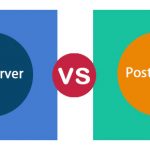
Whether you own a small venture or a well-established business, you’ll want to find new ways to boost your revenue and add more value for your customers. If your business requires cutting-edge technology, then fiber internet provides many benefits for small-to-large businesses in tangible ways.
Fiber is the fastest internet infrastructure available for businesses of all types. It delivers a high-quality internet that enables businesses to work efficiently and perform all sorts of online tasks without any hassle. From customer relationship management (CRM), posting on social media accounts, and video conferencing to running your website seamlessly, fiber internet offers exactly what you are looking for!
Advantages of Using Fiber Internet for Your Business
Here are some of the benefits of switching to a fiber internet connection for your office network:
Faster Speeds
With Fiber Internet, you don’t need to worry about internet slowdowns. It offers speeds that are much faster than what you get with cable or wireless internet. While other connection types offer upload speeds that can be as low as one-tenth of your download speed, fiber offers symmetrical speeds. This means that your upload speeds will be just as fast as your download speeds. As a result, you can easily upload large files, host video conferencing, or use cloud services, such as Dropbox, OneDrive, or Google Drive. Hence, it allows you to manage workload efficiently even on remote servers. Moreover, you can share your network with all employees at your workplace to carry out online tasks related to your business.
Improved Security, Less Interference
Since fiber optic cable does not use a copper or coax line to carry signals to your devices, it is more secure than any other internet connection type. This makes it difficult for hackers to break into your connection to access your business’s confidential data. Moreover, it protects devices, including mobile phones, laptops, and computers against potential security risks and threats, which you may experience with other internet connection types.
Unlike cable, fiber internet connection is less likely to encounter interference due to physical obstructions or electromagnetic signals from other devices in the same area. Moreover, it is less likely to disrupt due to power outages, changing weather conditions, wear and tear, and even differences in temperatures.
Cost-Effective
Since fiber optic cables do not require electricity to transfer data, you will get lower electricity bills every month. In addition, fiber internet delivers high-quality signals at much higher frequency ranges without needing regular maintenance. Therefore, it allows you to save money by avoiding maintenance costs and less networking hardware.
Low Latency
The term “latency” refers to the delay in the transfer of data from source to its destination. With a fiber-optic network, signals are transmitted much faster than cable internet, which reduces latency. You will notice low latency when your emails are sent or received without any delay, websites load within a few seconds, and your applications/systems perform much better than how they did with other internet types.
Growth-Intensive
Fiber internet is scalable, which means that you can upgrade the speed of your network by choosing an internet plan that fits your business’s speed needs. This allows your company to grow by expanding its operations with scanners, printers, point-of-sale terminals, and credit card machines. In addition, it lets you manage your company’s sales, customer support, and marketing using advanced analytics, applications, and automation tools.
Limitations of Fiber Internet for Your Business
While there are so many benefits of having fiber internet for your business, you need to know some of the downsides of using fiber internet:
Limited Availability
Fiber internet is available in limited parts of the US, mostly in big metropolitan areas. If your business is located in one of the rural areas, you should consider choosing a rural internet plan for high-speed internet without breaking the bank.
High Costs
The hefty price you pay for fiber internet includes the costs associated with its infrastructure. Therefore, it is much more expensive than other internet connection types that are available at lower rates. This means that you need to set a monthly budget to pay off your company’s internet bills, which may go up and down depending on your company’s data usage.
Closing Thoughts
With fiber optic internet, you will have speeds that are much faster than what you get with DSL or cable internet. You may believe that you are paying a lot for an internet connection that you can find at cheaper prices. However, none of the other internet connection types offers speeds, reliability, security, and scalability just as good as fiber internet.
Fiber internet allows you to achieve your business goals without any internet issues that you may encounter with other connection types. With everything in place, your business is set to reach new heights of success!




